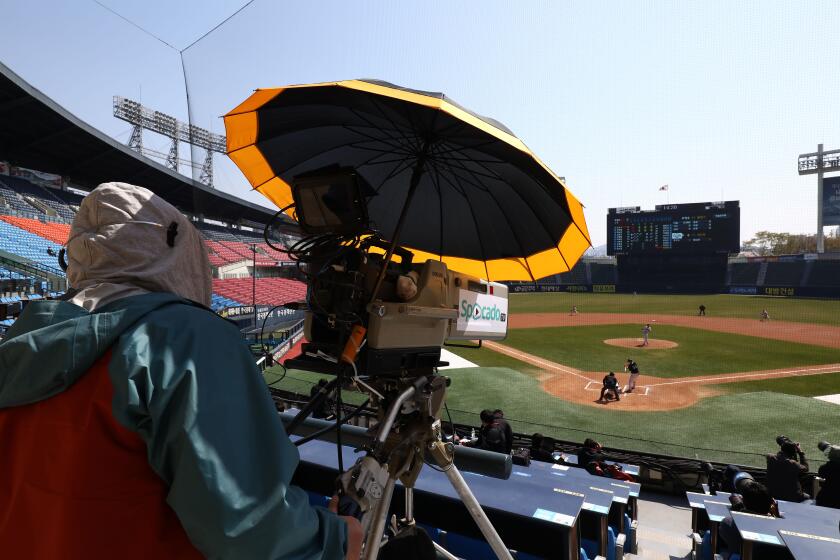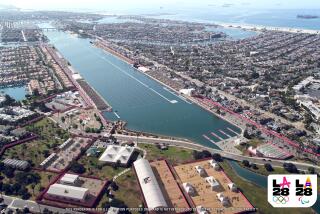International track-and-field season to resume in August after coronavirus hiatus
- Share via
Track and field has become the latest sport to announce a return, as officials plan to end their COVID-19 hiatus with a series of revised, one-day meets beginning in mid-August and stretching into fall.
The international track federation says that, between the Diamond League and the Continental Tour Gold circuits, there could be as many as 18 competitions in Europe, Asia, Africa and the Middle East. A U.S. stop in Eugene, Ore., is scheduled for Oct. 4.
But officials also warned that “the uncertainty over future government restrictions and timings in the different host countries requires flexibility” and that fields could be limited.
A nation yearns for sports, a hint of normalcy, amid the coronavirus pandemic. But infectious disease experts wonder: Is it realistic?
“Inevitably, international travel restrictions will affect the ability of some athletes to attend some meetings, but we hope that there will be a wide enough range of meetings available for most elite athletes to access some competition before the end of the year,” said Sebastian Coe, president of World Athletics.
News of the revamped season came Tuesday as London organizers canceled an early July meet, the latest in a string of competitions scrapped because of the COVID-19 pandemic.
The sport had already started experimenting with a return, holding a video competition between pole vaulters jumping in their backyards and planning a slimmed-down meet in Norway next month.
Three of the world’s top pole vaulters square off via video, keeping their distance by jumping in their backyards in France, Louisiana and Mississippi.
The official 2020 schedule will now begin with the Paavo Nurmi Games in Finland on Aug. 11, followed by a Diamond League meet in Monaco three days later. Another major event, the world half-marathon championships, is scheduled for mid-October.
Given the abridged nature of the meets, organizers will announce their altered formats in the weeks preceding each competition. Also, there will be no point standings leading to a season finale.
The provisional calendar could prove crucial for the run-up to the Summer Olympics in Tokyo, which have been postponed until 2021.
The important thing, Coe said, is that athletes “can earn prize money and assess their training progress in preparation for next year’s Olympic Games, although we know this will not be easy for everyone.”
More to Read
Go beyond the scoreboard
Get the latest on L.A.'s teams in the daily Sports Report newsletter.
You may occasionally receive promotional content from the Los Angeles Times.









